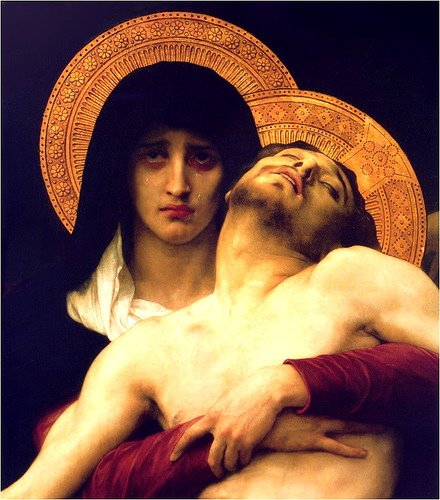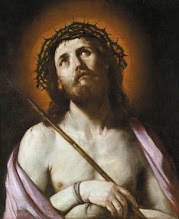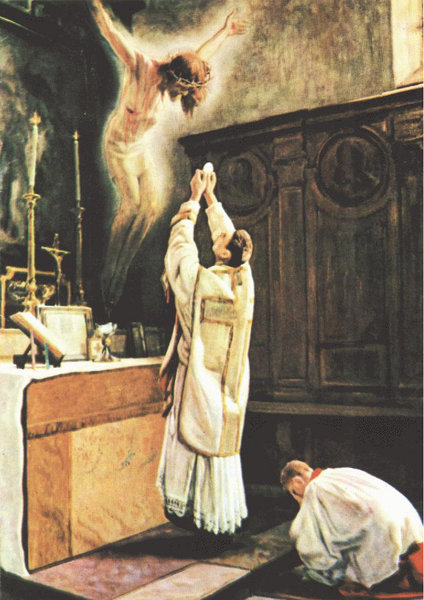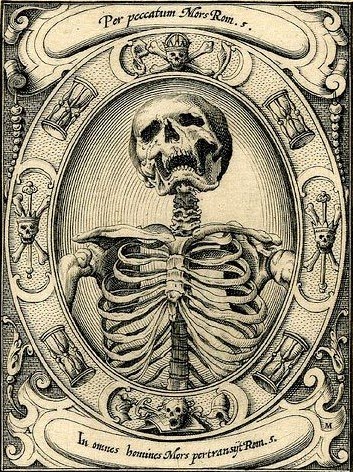SERMON XII. SEPTUAGESIMA SUNDAY.
On the importance of salvation.
" He sent them into his vineyard." MATTHEW xx. 2
THE vines of the Lord are our souls, which he has given
us to cultivate by good works, that we may be one day
admitted into eternal glory. "How," says Salvian,
" does it happen that a Christian believes, and still docs
not fear the future?" Christians believe death, judg
ment, hell, and Paradise: but they live as if they
believed them not as if these truths of faith were tables
or the inventions of human genius. Many live as it
they were never to die, or as if they had not to give
God an account of their life as if there were neither^
hell nor a heaven. Perhaps they do not believe in
them? They believe, but do not reflect on them ; and
thus they are lost. They take all possible care of worldly
affairs, but attend not to the salvation of their souls. 1
shall show you, this day, that the salvation of your souls
is the most important of all affairs.
First Point. Because, if the soul is lost, all is lost
Second Point. Because, if the soul is lost once, it is
lost for ever.
First Point. If the soul is lost, all is lost.
1. "But," says St. Paul, "we entreat you .... that
you do your own business." (1 Thess. iv. 10, 11.) The
greater part of worldlings are most attentive to the
business of this world. What diligence do they not
employ to gain a law-suit or a post of emolument !
How many means are adopted how many measures
taken? They neither eat nor sleep. And what efforts
do they make to save their souls ? All blush at being
told that they neglect the affairs of their families ; and
how few are ashamed to neglect the salvation of their
souls. " Brethren," says St. Paul, I entreat you that
you do your own business ;" that is, the business of your
eternal salvation.
2. “Nugae puerorum”, says St. Bernard, “nugae vocantur, nugae malorum negotia vocantur.” The trifles of children ^ are called trifles, but the trifles of men are called business ; and for these many lose their
souls. If in one worldly transaction you suffer a loss, you may repair it in another; but if you die in enmity with God, and lose your soul, how can you repair the loss ? " What exchange can a man give for his soul:" (Matt. xvi. 26.)
To those who neglect the care of salvation, St. Euterius says : " Quam pretiosus sis, homo, si Creatori non credis, interroga Redemptorem." (Horn. ii. in Symb.) If, from being created by God to his own image, you do not comprehend the value of your soul, learn it from Jesus Christ, who has redeemed you with his own blood. " You were not redeemed with corruptible things, as gold or silver, but with the precious blood of Christ, as of a lamb unspotted and undefiled." (1 Pet. i. 18, 19.)
3. God, then, sets so high a value on your soul;
such is its value in the estimation of Satan, that, to
become master of it, he does not sleep night or day,
but is continually going about to make it his own.
Hence St. Augustine exclaims: " The enemy sleeps not,
and you are asleep." The enemy is always awake to
injure you, and you slumber. Pope Benedict the
Twelfth, being asked by a prince for a favour which
he could not conscientiously grant, said to the ambas
sador : Tell the prince, that, if I had two souls, I might
be able to lose one of them in order to please him ;
but, since I have but one, I cannot consent to lose it.
Thus lie refused the favour which the prince sought
from him.
4. Brethren, remember that, if you save your souls,
your failure in every worldly transaction will be but of
little importance : for, if you are saved, you shall enjoy
complete happiness for all eternity. But, if you lose
your _ souls, what will it profit you to have enjoyed all
the riches, honours, and amusements of this world ? If
you lose your souls, all is lost. " What doth it profit
a man, if he gain the whole world, and suffer the loss
of his_own soul ?" (Matt. xvi. 26.) By this maxim St.
Ignatius of Loyola drew many souls to God, and among
them the soul of St. Francis Xavier, who was then
at Paris, and devoted his attention to the acquirement
of worldly goods. One day St, Ignatius said to him :
" Francis, whom do you serve ? You serve the world,
which is a traitor, that promises, but does not perform.
And if it should fulfil all its promises, how long do
its goods last ? Can they last longer than this life ?
And, after death, what will they profit you, if you shall
not have saved your soul ?" He then reminded Francis
of the maxims of the Gospel: "What doth it profit
a man, if he gain the whole world, and suffer the loss
of his own soul ?" " But one thing is necessary ?"
(Luke x. 42.) It is not necessary to become rich on
this earth to acquire honours and dignities ; but it is
necessary to save our souls ; because, unless we gain
heaven we shall be condemned to hell: there is no
middle place : we must be either saved or damned.
God has not created us for this earth ; neither does he
preserve our lives that we may become rich and enjoy
amusements. "And the end life everlasting." (Horn,
vi. 22.) He has created us, and preserved us, that we
may acquire eternal glory.
5. St. Philip Neri used to say, that he who does not
seek, above all things, the salvation of his soul, is a
fool. If on this earth there were two classes of men,
one mortal, and the other immortal, and if the former
saw the latter entirely devoted to the acquisition of
earthly goods, would they not exclaim : O fools that
you are! You have it in your power to secure the
immense and eternal goods of Paradise, and you lose your time in procuring the miserable goods of this earth, which shall end at death. And for these you expose yourselves to the danger of the eternal torments of hell. Leave to us, for whom all shall end at death, the care of these earthly things. But, brethren, we are all immortal, and each of us shall be eternally happy or
eternally miserable in the other life. But the misfortune of the greater part of mankind is, that they are solicitous about the present, and never think of the,future. " Oh ! that they would be wise, and would understand, and would provide for their last end." (Deut. xxxii. 29.) Oh ! that they knew how to detach themselves from present goods, which last but a short
time, and to provide for what must happen after death an eternal reign in heaven, or everlasting slavery in hell.
St. Philip Neri, conversing one day with Francis
Zazzera, a young man of talent who expected to make
a fortune in the world, said to him : " You shall realize
a great fortune; you shall be a prelate, afterwards a car
dinal, and in the end, perhaps, pope. But what must
follow? what must follow? Go, my son, think on these
words." The young man departed, and after meditating
on the words, what must follow? What must follow? he
renounced his worldly prospects, andgave himself entirely
to God; and, retiring from the world, he entered into the
congregation of St. Philip, and died a holy death.
" The fashion of this world passeth away." (i Cor.
vii. 31.) On this passage, Cornelius a Lapide, says, that
" the world is as it were a stage." The present life is a
comedy, which passes away. Happy the man who acts
his part well in this comedy by saving his soul. But if
he shall have spent his life in the acquisition of riches
and worldly honours, he shall justly be called a fool ;
and at the hour of death he shall receive the reproach
addressed to the rich man in the gospel : " Fool, this
night do they require thy soul of thee ; and^ whose shall
these things be which thou hast provided?" (Luke xii
20.) In explaining the words " they require Toletus
says, that the Lord has given us our souls to guard
them against the assaults of our enemies ; and that at
death the angel shall come to require them of us, and shall present them at the tribunal of Jesus Christ. But
it we shall have lost our souls by attending only to the
acquisition of earthly possessions, these shall belong to
us no longer they shall pass to other hands: and what
shall then become of our souls ?
7. Poor worldlings ! of all the riches which they
acquired, of all the pomps which they displayed in this
life, what shall they find at death ? They have slept
their sleep : and all the men of riches have found
nothing in their hands." (Ps. Ixxv. 6.) The dream of
this present life shall be over at death, and they shall
have acquired nothing for eternity. Ask of so many
great men of this earth of the princes and emperors,
who, during life, have abounded in riches, honours, and
pleasures, and are at this moment in hell what now
remains of all the riches which they possessed in this
world ? They answer with tears: "Nothing, nothing. - 1
And of so many honours enjoyed of so many past pleasures of so many pomps and triumphs, what now remains? They answer with tears:
"Nothing, nothing."
8. Justly, then, has St. Francis Xavier said, that in
the world there is but one good and one evil. The
former consists in saving our souls ; the latter in losing
them. Hence, David said: " One thing I have asked of
the Lord ; this I will seek after that I may dwell in
the house of the Lord." (Ps. xxvi. 4.) One thing only
have I sought, and will for ever seek, from God that
he may grant me the grace to save my soul ; for, if I
save my soul, all is safe ; if I lose it, all is lost. And,
what is more important, if my soul be once lost, it is lost
for ever. Let us pass to the second point.
Second Point. If the soul be once lost, it is lost for ever.
9. Men die but once. If a Christian died twice, he
might lose his soul the first, and save it the second time.
But we can die only once : if the soul be lost the first
time, it is lost for ever. This truth St. Teresa frequently
inculcated to her nuns: "One soul," she would say, "one
eternity." As if she said : We have but one soul : if
this be lost, all is lost. There is but "one eternity;" if the
soul be once lost, it is lost for ever. "Periisse semel
aeternum est."
10. St. Eucherius says that there is no error so great
as the neglect of eternal salvation. " Sane supra omnem
errorem est dissimulare negotium aeternae salutis." It is
an error which surpasses all errors, hecause it is irreme
diable. Other mistakes may be repaired : if a person
loses property in one way, he may acquire it in another ;
if he loses a situation, a dignity, he may afterwards re
cover them ; if he even loses his life, provided his soul
be saved, all is safe. But he who loses his soul has no
means of repairing the loss. The wailing of the damned
arises from the thought, that for them the time of salva
tion is over, and that there is no hope of remedy for their
eternal ruin. " The summer is ended, and we are not
saved." (Jer. viii. 20.) Hence they weep, and shall
inconsolably weep for ever, saying: " Therefore we have
erred from the way of truth, and the light of justice hath
not shined unto us." (Wis. v. 6.) But what will it
profit them to know the error they have committed,
when it will be too late to repair it ?
11. The greatest torment of the damned arises from
the thought of having lost their souls, and of having
lost them through their own fault. " Destruction is thy
own, O Israel ; thy help is only from me." (Osee xiii. 9.)
O miserable being ! God says to each of the damned ;
thy perdition is thine own ; that is from thyself ; by sin
thou hast been the cause of thy damnation ; for I was
ready to save thee if thou hadst wished to attend to thy
salvation. St. Teresa used to say, that when a person
loses a trifle through negligence, his peace is disturbed
by the thought of having lost it through his own fault.
O God ! what shall be the pain which each of the damned
shall feel on entering into hell, at the thought of having
lost his soul his all and of having lost them through
his own fault !
12. "We must, then, from this day forward, devote all
our attention to the salvation of our souls. There is no
question, says St. John Chrysostom, of losing some
earthly good which we must one day relinquish. But
there is question of losing Paradise, and of going to
suffer for ever in hell : " De immortalibus suppliciis,
de coelestis regni amissione res agitur." We must fear
and tremble ; it is thus we shall be able to secure eternal
happiness. " With fear and trembling work out your
salvation. 5 (Phil. ii. 12.) Hence, if we wish to save our
souls,^ we must labour strenuously to avoid dangerous
occasions, to resist temptations, and to frequent the
sacraments. Without labour we cannot obtain heaven.
The violent bear it away." The saints tremble at the
thought of eternity. St. Andrew Avellino exclaimed
with tears : Who knows whether I shall be saved or
damned ? St. Lewis Bertrand said with trembling :
What shall be my lot in the other world ? And shall
we not tremble ? Let us pray to Jesus Christ and his
most holy mother to help us to save our souls. This is
for us the most important of all affairs : if we succeed in
it, we shall be eternally happy ; if we fail, we must be
for ever miserable.

























